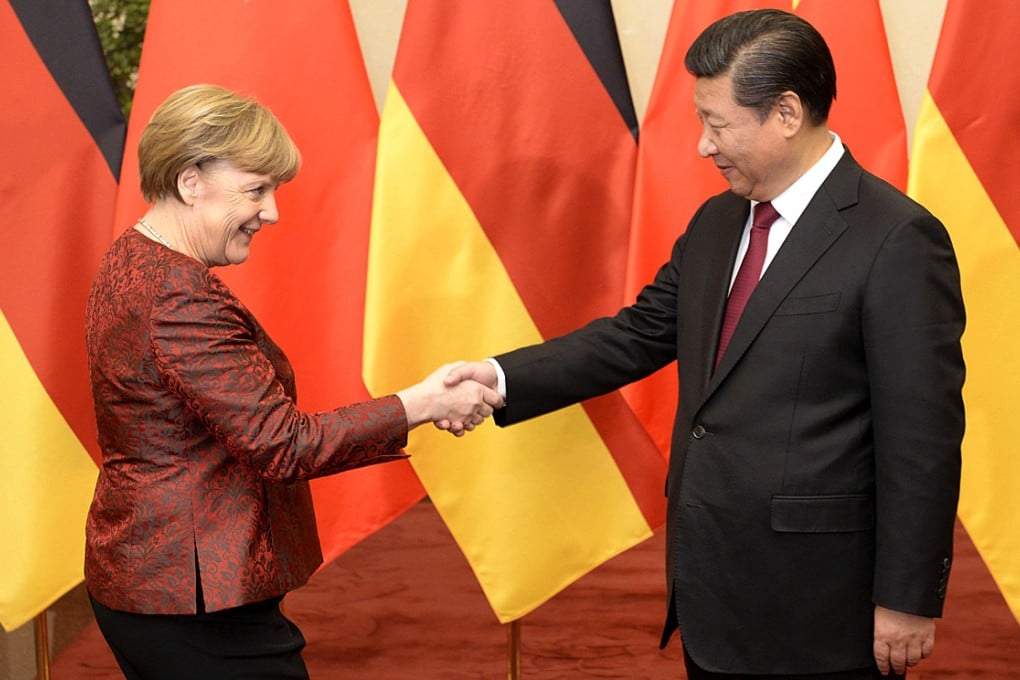Handshake to end the hacking: China and Germany pledge for peace in cyberspace by 2016
Negotiations that started during Merkel's visit to Beijing cover data security and the theft of intellectual property, German ambassador says

China and Germany aim to wrap up a deal over commercial cyberespionage as early as next year, according to German ambassador to China Michael Clauss.
The two countries had agreed to start negotiating an agreement to abstain from such activity when Chancellor Angela Merkel visited China at the end of last month, Clauss said.
The aim was to sign the deal at the next Sino-German intergovernmental consultations in Beijing in the first half of 2016, he said, adding that the agreement would cover not only the cybertheft of intellectual property, but also data security.
"Such an agreement would also help to promote bilateral innovation cooperation, such as on Industry 4.0 and Made in China 2025," said Clauss, referring to the two countries' development strategies for their manufacturing sectors.
He said private companies and in particular small and medium-sized firms were important drivers for Germany's Industry 4.0 strategy, and that China was hoping to involve more German technology companies in its market.
"Improving data security and removing obstacles to moving data internationally would be important steps to enhance Sino-German cooperation on innovation," Clauss said.